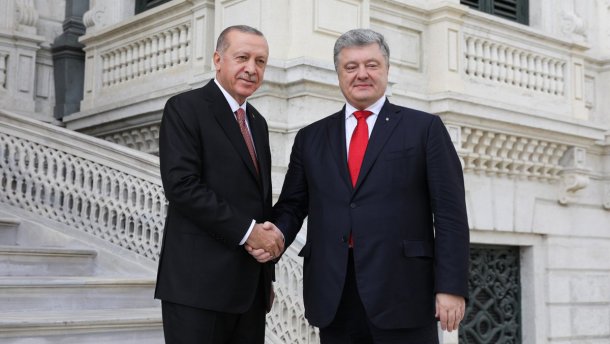The simultaneous elections in Ukraine and Turkey were marked by similar results – in both countries, the incumbent leaders suffered a significant defeat, although the losses for Erdogan’s party are certainly not as critical as the result for Petro Poroshenko, who received only 16.8% of the vote in the first round, compared to comedian Vladimir Zelensky’s 30%. However, local elections are not as important as presidential elections – if Poroshenko loses in the second round, it will almost certainly mean the end of his political career.
Still, we can talk about the similarities in these results. Whether people like them or not, these leaders have faced significant challenges and have had to address them. Recep Tayyip Erdogan essentially gave birth to a new Turkey after several miscarriages that his predecessors – Adnan Menderes, Turgut Ozal, and his teacher Necmettin Erbakan – were unable to prevent. Unlike them, Erdogan became a leader who managed to dismantle the system of state Islamophobia based on ideologically united circles of military, bureaucrats and judges. Despite some progress in this regard under Menderes and especially Ozal, conscious and observant Muslims in the country were still marginalized and deprived of many civil and humanitarian rights. It was Erdogan who managed to gradually dismantle this system of anti-Muslim apartheid by neutralizing the resistance from powerful circles inside and outside the country.
Petro Poroshenko, unlike Erdogan, did not devote most of his conscious life to the realization of the political project of a new Ukraine. However, he was destined to lead the country during its most radical and ideological transformation. In 2013, post-Soviet Ukraine, strongly tied to Moscow, decided to secede, which turned out to be painful and bloody. In 2014, when hybrid separatists, taking advantage of the paralysis of central authority after the annexation of Crimea, tried to repeat this story in different regions of Ukraine, the country’s existence as a state was at stake, and its enemies anticipated its imminent dissolution. Of course, the credit for Ukraine’s ability to resist, regroup and stop the spread of “Russian world gangrene” belongs not only to Poroshenko, but also to the Ukrainian people as a whole, especially to its dedicated sons and daughters, volunteers who rebuilt the country’s institutions and armed forces under his leadership.
In both cases, much remains to be done. However, it is clear that the megalomaniacal hopes invested in both leaders, such as the revival of the caliphate or the transformation of Turkey into a stronghold of global political Islam, have not been fulfilled. Similarly, many in Ukraine were disappointed that the country did not become a prosperous and dynamically developing country comparable to the advanced countries of Eastern Europe after the Maidan.
Both countries also face risks if their leaders lose power. In Turkey, there is more reason to hope that the old discriminatory and Islamophobic order will not be restored even after Erdogan’s departure or his party’s loss of power. However, fears of such a reversal are still justified, especially when representatives of the main opposition parties demonstrate their loyalty to Islam and observant Muslims, while the protest movement openly expresses its desire to return to the old order. This is especially true with regard to Turkey’s presence in Syria, which serves as a guarantee against the defeat of the regime by the powerful forces of the regime, Russia and Iran.
In Ukraine, if Poroshenko’s opponent wins in the second round, there is a high probability of a complete abandonment of the anti-colonial course set by the Revolution of Dignity. This could lead to a civil war in the country, just as millions of Muslims in 2016 did not accept the threat of a counterrevolution, just as today’s Ukrainian patriots will not quietly accept a capitulation to the Kremlin that would diminish the sacrifices made by their loved ones and comrades in recent years.
Given all this, both leaders and their supporters will undoubtedly continue to fight. The question, however, is what they are fighting for. Trying to hold on to power indefinitely in the conditions of electoral democracy and a developed civil party system is not only pathetic, but also ineffective. Neither Turkey nor Ukraine are countries where a scenario of a lifelong presidency or a leader of the nation can take place.
It is a completely different situation if the struggle is aimed at preventing a possible counterrevolution, a return to the old orders that both leaders worked to dismantle. Such a framing of the issue is appropriate, but it should be understood that this task cannot be indefinitely tied to one person or even one party, especially in a modern multi-party country. The responsibility of a leader in such a situation is to remain in power no longer than necessary, including preparing for his own replacement by those who can effectively address these historic tasks in the next phase of the country’s history.

